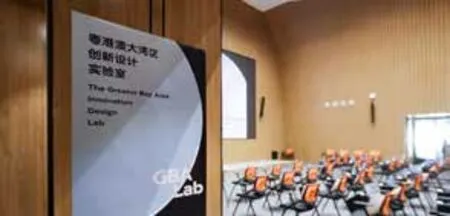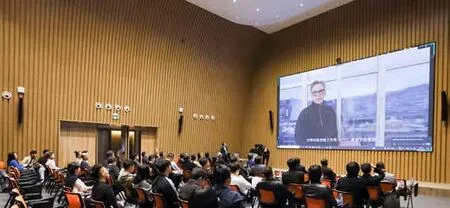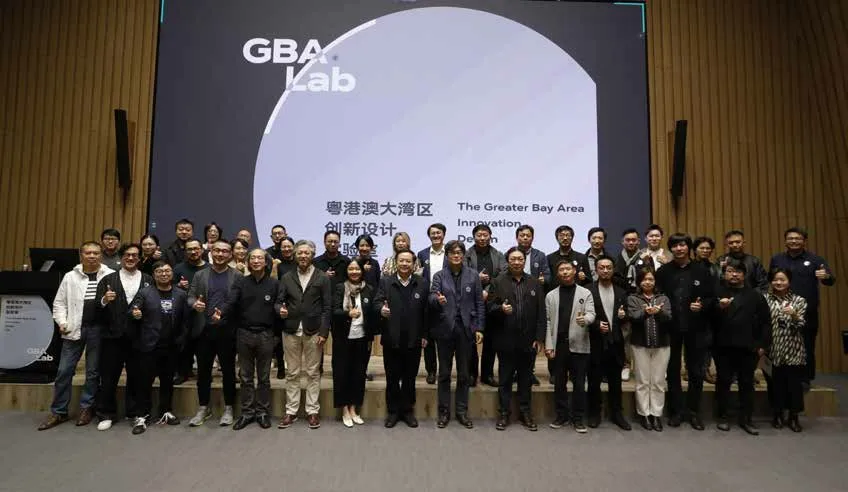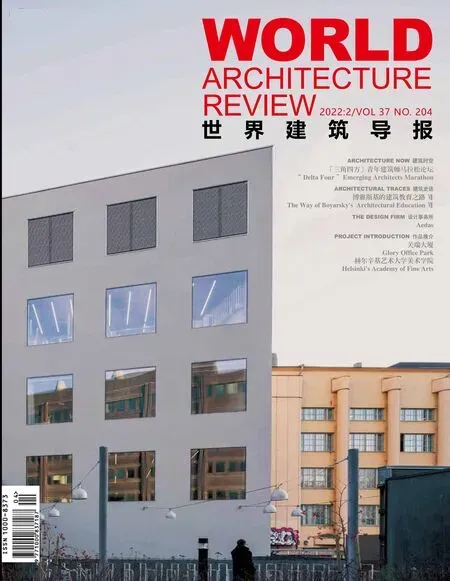「三角四方」青年建筑师马拉松论坛——深圳大学粤港澳大湾区创新设计实验室启动仪式(上)
2022-04-25

2021年10月,深圳大学粤港澳大湾区创新设计实验室(中文缩写“大湾区实验室”,英文缩写"GBA Lab")正式成立。实验室是专注于粤港澳大湾区及全球城市化前沿问题的空间研究与设计机构,由深圳大学建筑与城市规划学院特聘教授、博士生导师刘珩博士创建并担任实验室主任、学术主持。实验室通过跨界跨学科的合作及以设计为导向的研究,结合实验性的设计实践、教学、展览、出版和学术论坛等多种形式,探索回应前沿问题的空间创新及多种可能的解决途径,旨在成为驱动建筑学可持续发展的引擎。
粤港澳大湾区包括香港特别行政区、澳门特别行政区和广东省广州市、深圳市、珠海市等在内的珠三角九市,是目前全球发展最快、经济最发达和空间密度最高的地区之一。《粤港澳大湾区发展规划纲要》明确了大湾区的战略定位,即充满活力的世界级城市群、具有全球影响力的国际科技创新中心、“一带一路”建设的重要支撑、内地与港澳深度合作示范区、宜居宜业宜游的优质生活圈。
与此同时,经过了四十年史无前例的快速城市化历程,大湾区很快进入了存量发展的阶段,城市空间面临新的挑战。一方面,地域文化、基础设施、空间发展与城市生活品质的关系需要被重新审视;另一方面,住房拥挤、交通堵塞、水源短缺、空气污染、土地紧张及环境持续恶化等典型城市问题也日益加重。回应这些挑战和问题、面对未来空间发展的不确定性和复杂性,成为大湾区实验室设计创新的出发点。



城市在快速高效发展中产生的困局具有独特性和典型性,也具有全球性和普遍性。以深圳和粤港澳大湾区为范式来对这些城市问题进行研究和解答,有全球性的借鉴意义。大湾区创新设计实验室的成立具有重要的战略意义:它是城市的智库,是先锋设计实践的孵化器,也是国际学术交流的平台。实验室主任刘珩认为,“跨界、整合和创新”是大湾区实验室的关键词和特色,而“淡定、生猛和务实”是平台的态度和个性;实验室将扎实而真诚地持续推动研究设计方法论的实践和落地,助力塑造可持续、人性化、多元活力的城市环境。
2021年12月10日下午,深圳大学粤港澳大湾区创新设计实验室启动仪式暨「三角四方」青年建筑师马拉松论坛于深圳大学本原讲堂召开。论坛由深圳大学建筑与城市规划学院及粤港澳大湾区创新设计实验室联合主办,本原设计研究中心协办。在实验室主任、学术主持刘珩教授策划和召集下,粤港澳大湾区27位青年建筑师展开了一场密集紧凑的马拉松演讲和对谈,通过对未来城市和建筑问题的探讨,回应十个当下我们所面临的问题,共同预言和想象未来的人居环境。
In October 2021, The Greater Bay Area Innovation Design Lab (The GBA Lab) of Shenzhen University is officially established. Founded by Dr. Doreen Heng LIU, director/academic chair of the GBA Lab and distinguished professor/doctorial supervisor at the School of Architecture and Urban Planning of Shenzhen University, the lab is a pioneer in spatial research and design for the current GBA and for global urbanization.The GBA Lab explores spatial innovation and the multiple possible solutions that are responses to front-line issues through cross-boundary and interdisciplinary approaches with design-oriented research methodology,combining experimental design practices, teaching, exhibitions, publications, and academic conferences. It aims to become an engine that powers the sustainable development of architecture.
The Greater Bay Area consists of Hong Kong SAR, Macao SAR, and nine cities of the Pearl River Delta in Guangdong Province, namely Guangzhou, Shenzhen, Zhuhai, Foshan, Huizhou, Dongguan, Zhongshan,Jiangmen, and Zhaoqing. Formed during different stages of history, this distinctive and diverse city cluster is currently one of the fastest growing, most economically developed, and spatially densest regions in the world. The “Outline Development Plan for the Guangdong-Hong Kong-Macao Greater Bay Area” clearly defines the five strategic positioning qualities of the Greater Bay Area, which are: a vibrant world-class city cluster, a global technology and innovation hub, a giant pivot of Belt and Road (B&R), a showcase for in-depth cooperation between the Chinese mainland, Hong Kong and Macao, and a quality living circle for living, working and traveling.
At the same time, after forty years of unprecedented rapid urbanization, the Greater Bay Area is inevitably entering the stage of stock development and facing new challenges regarding urban space. On the one hand, the relationship between regional culture, infrastructure, spatial development, and urban living quality needs to be re-examined, while on the other hand, overcrowded housing, traffic congestion, water shortages,air pollution, land constraints, and environmental degradation, which are universal problems in global cities,have also become core issues of regional concern. The response to these challenges and to the uncertainty and complexity of future spatial development has become the starting point for the design innovations at the GBA Lab.
The predicament produced through rapid and efficient urbanization is not only unique and typical, but also global and universal. Using Shenzhen as a paradigm to study and address these urban problems is not only relevant to Chinese cities, but to other countries too. The establishment of the GBA Lab is of great strategic importance: it is a think tank for the city, an incubator for pioneering practices, and also a platform for international academic exchanges. Professor Doreen Heng LIU, director and academic chair of the GBA Lab, believes that “interdisciplinary, integraty and innovation” are the keywords and characteristics of the Lab,while “calm, vigorous and pragmatic” are the attitude and personality of the platform. GBA Lab will continue to promote the practice and implementation of research and design methodology in a steady and genuine manner, and foster the shape of sustainable, humane, diverse and dynamic future cities.
On December 10th, 2021, the Greater Bay Area Innovation Design Lab Launching Ceremony and the “Delta Four” Emerging Architects Marathon was held in the Benyuan Design Research Center Auditorium, Shenzhen University. The forum was organized by the School of Architecture and Urban Planning, Shenzhen University,with the Greater Bay Area Innovation Design Lab and the Benyuan Design Research Center. Professor Doreen Heng LIU convened 27 emerging architects from different cities in the Greater Bay Area and held an intensive marathon of speech and dialogue. The architects responded ten current issues we need to face through discussions on urbanism and architecture, and imagined possibilities of future living environment.

